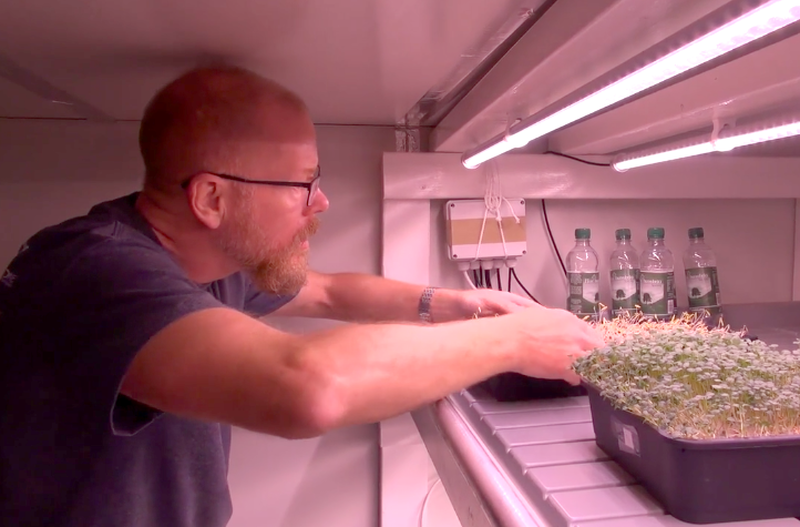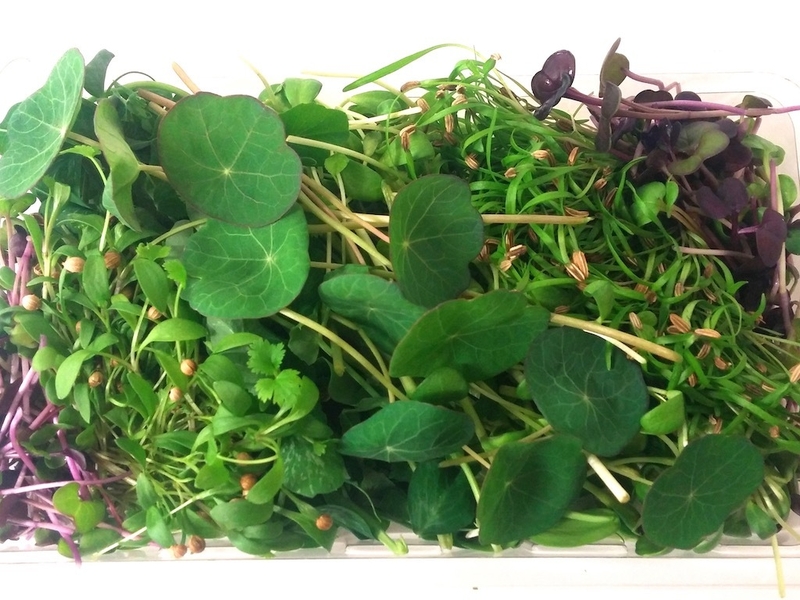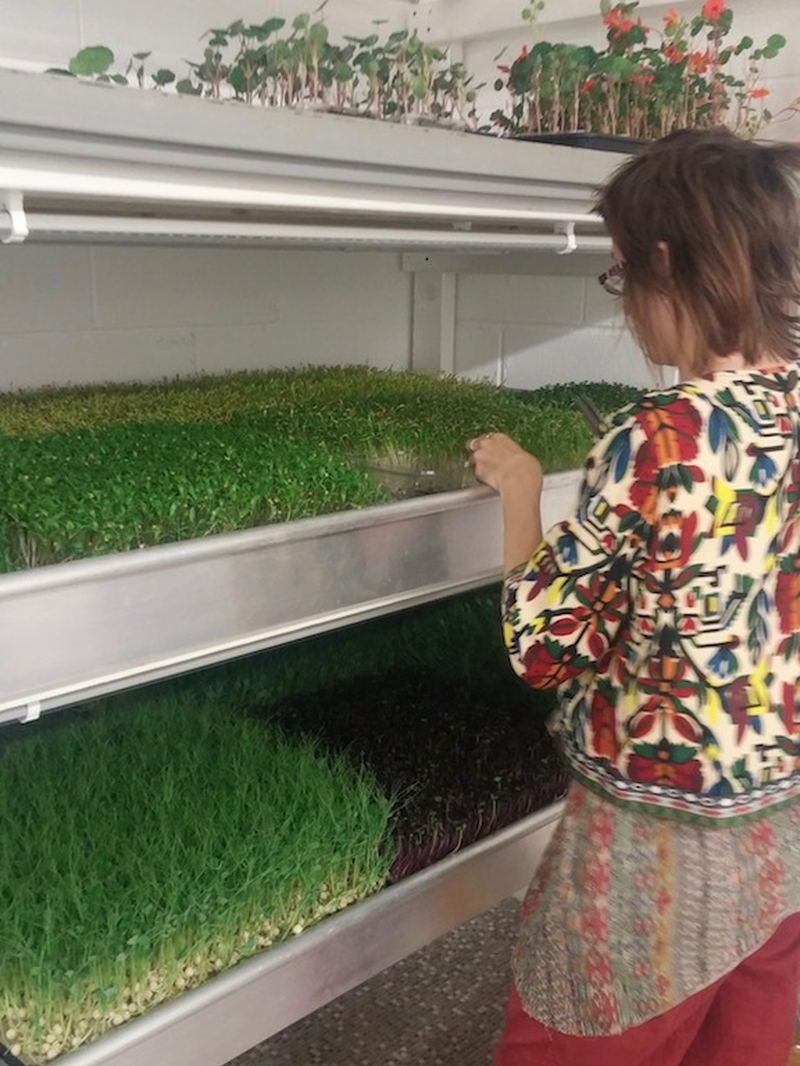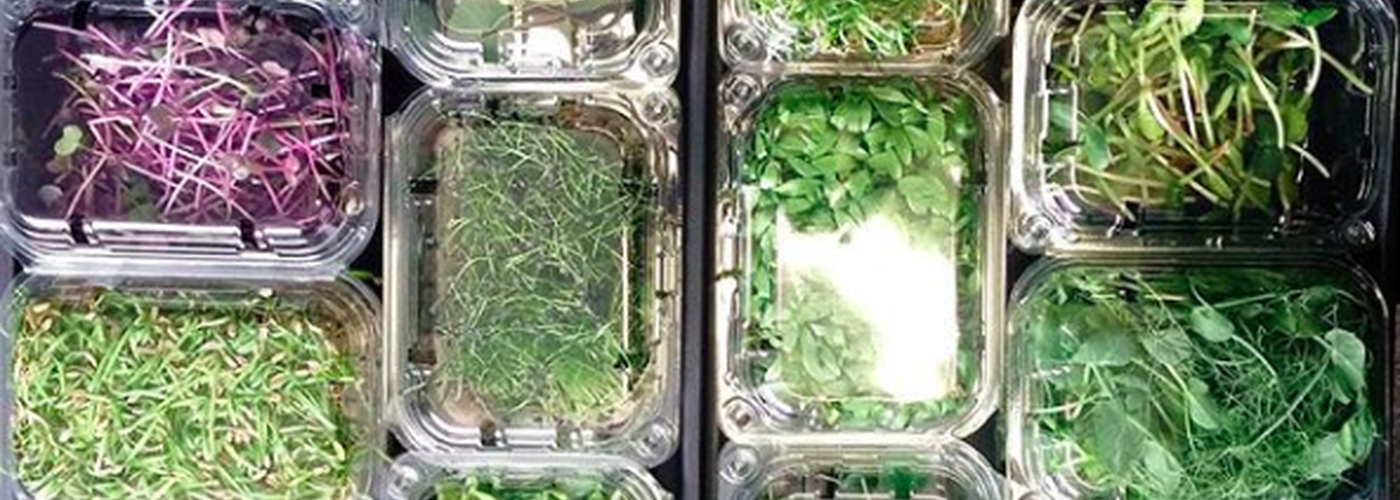Kate Ryrie meets Rob Moores - the man behind the Sheepscar-based urban farming social enterprise
Every now and then, problems and possibilities come together to make great things happen. Back in 2016, Rob Moores made the connection between the lack of support for mental health in Leeds and the proven ability of growing to help people with mental health conditions. That was when the unique idea for Growing Better was born.
Growing Better is a social enterprise dedicated to supporting people who battle with mental health issues. It centres around the concept of ‘hydroponic growing’ (growing plants and shoots using no soil, only water) and a drive to build communities that create value, promote learning, and give something back.
The produce is great, but that’s just a means to an end.
‘We grow microgreens,’ Rob tells me. ‘Pea shoots, sunflower shoots, micro-coriander, fennel, radish… But we’re going to expand to grow things like lettuces and basil plants. There’s quite a range, but we’re not growing everything, not yet.’ Rob is quietly ambitious – speaking matter-of-factly about the enterprise’s current indoor farm in Sheepscar, and the three-quarters of an acre site in Armley, which they’re trying to establish as a community farm.
But Growing Better isn’t just about the trade of tiny vegetables. ‘The produce is great, but that’s just a means to an end,’ says Rob. ‘The end is improving people’s mental health – that’s where the real social value comes in.’

From the very beginning, Growing Better has employed people with long-term mental health conditions, gradually building a strong core team – now at four, including new operations director, Dorota, who came on board in August. As they’ve grown, the focus has been on developing relationships in the places they can offer further support.
When I ask about that support, Rob tells me the goal is to start taking volunteers on in six to twelve-week blocks. ‘People who are on the path to recovery, but need that extra hand to feel comfortable getting back to work,’ he says. ‘We can help reduce their social isolation, rebuild their confidence and redevelop workplace skills such as timekeeping and accountability. On top of that, we can give them basic horticultural skills.’
Earlier this year, Growing Better ran a course at the Stocks Hill Hub – an adult mental health day centre in Armley – allowing participants to grow produce, farm it, cook it and share a meal together. And there’s that cycle of ‘giving back’ again – how physical activity, education and sharing combine with the wider environmental system around sustainable food and healthy eating to create a process with some seriously positive benefits for mental health recovery.
‘There’s not a lot of money in food, but that’s not the reason we’re doing this,’ Rob says, affirming something that’s been implicitly clear from the start – this initiative is based on a foundation of care, kindness, and a drive to help the Leeds community thrive.

With plans to expand to work with people with learning disabilities, funding to take part in Leeds Community Foundation’s ‘Healthy Holidays’ programme (making sure kids get two square meals a day during the summer holidays), and ambitions to expand further into the worlds of education and corporate wellbeing, the possibilities for Growing Better are – well, growing.
Just when I think the conversation is coming to an end, Rob hits me with some of the ideas and tech that underpin Growing Better. Innovation is not a word I use lightly – but it seems appropriate here, as Rob tells me how the they’re minimising waste streams by reusing and recycling, and using a solar energy box that offers a 30 percent reduction in electricity consumption, with the possibility of returning energy back to the grid in the future.
‘We’re always looking for opportunities to reduce our footprint in and our footprint out – it’s all part of trying to take a holistic view,’ says Rob. Growing Better makes mulch (stuff to make soil more fertile) from sunflower husks, and now, Rob’s developing a whole new avenue in micro-farming. The specifics are complicated, but basically, he discovered pea shoot roots could be used to feed black soldier fly larvae. These bugs are normally fed to chickens, but offer a whole new source of protein – if you farm them right.
‘So as well as having microgreens, we could have a micro-animal farm too,’ Rob’s eyes light up. ‘Black soldier fly larvae aren’t used in the human food chain at the moment. In the future they will be.’

And sure enough, the future does look like an exciting place for Growing Better, the social enterprise dedicated to making the world a little bit brighter for the many people among us who find it a scary place at times.
‘It’s been challenging, but it’s been ultimately very rewarding,’ says Rob with a smile. ‘Business is a necessary evil, but let’s try and make it as good as it gets.’
Find out more about Growing Better on their website, or follow them on Instagram, Twitter or Facebook to stay up to date with their work.




